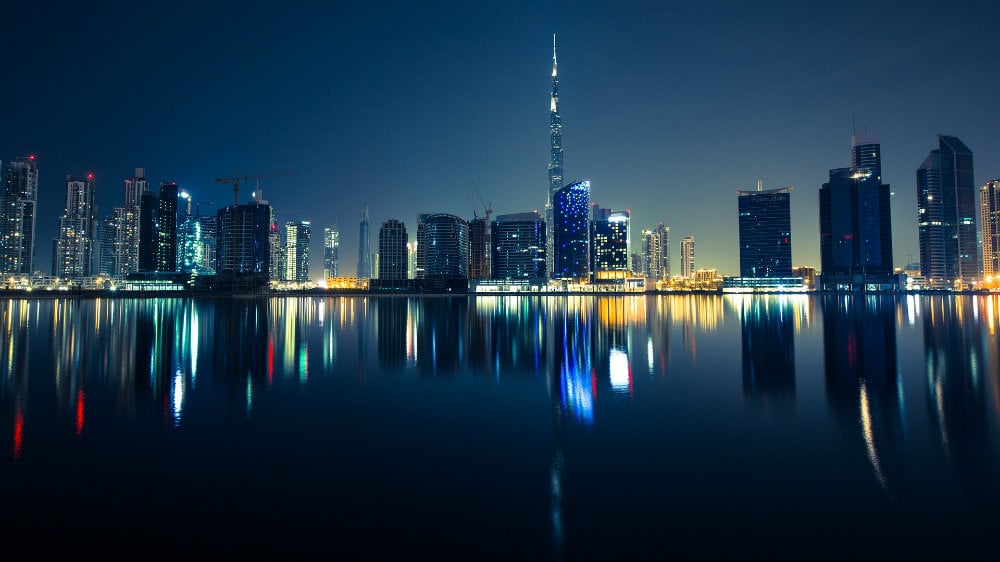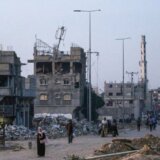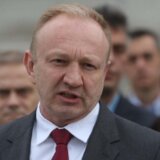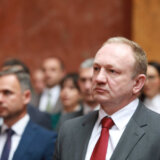 Foto: Pixabay/Pexels
Foto: Pixabay/PexelsDok nadležni ističu zadovoljstvo zbog činjenice da su Ujedinjeni Arapski Emirati najveći kupac srpskog naoružanja i vojne opreme stručna javnost upozorava da taj izvoz predstavlja ne samo kršenje međunarodnih sporazuma već i domaćih zakonskih rešenja, zbog uloge koju ta zemlja ima u oružanim konfliktima u svom okruženju.
For English version, please scroll down
Naime, Ujedinjeni Arapski Emirati, koji kupuju oružje proizvedeno u našoj zemlji, direktno učestvuju u građanskom ratu u Jemenu, na strani aktuelne vlade a protiv pobunjenika koji imaju podršku Irana.
Takođe, UAE u Libiji pružaju vojnu podršku i generalu Kalifi Haftaru koji je u oružanom konfliktu sa međunarodno priznatom vladom u Tripoliju.
Trupe Ujedinjenih Arapskih Emirata su svojevremeno vojno intervenisale, na poziv vlade Bahreina, tokom nasilnog gušenja građanskih protesta u toj zemlji tokom takozvanog „Arapskog proleća“.
Zbog toga a i niza drugih stvari stručna javnost smatra da je izvoz srpskog oružja u tu zemlju potpuno problematičan.
– Izvoz oružja u UAE i druge sporne krajnje destinacije predstavlja kršenje Sporazuma Ujedinjenih nacija o trgovini oružjem (ATT), ali za tako nešto ne postoje jasne sankcije, što je problem na globalnom nivou. Ne radi se samo o nepoštovanju ATT, već i našeg Zakona o izvozu i uvozu naoružanja i vojne opreme koji takođe propisuje da se pri izvozu naoružanja razmatra da li postoji rizik od preusmeravanja ili reeksporta u neželjene destinacije. To je inače predviđeno njegovim članom 17. Otkrića različitih medija i međunarodnih organizacija u prethodnih nekoliko godina jasno ukazuju da se oružje pristiglo u UAE i Saudijsku Arabiju perusmerava dalje i završava u rukama različitih ekstremističkih grupa ili diktatorskih režima, u zemljama u kojima dolazi do kršenja ljudskih prava. Ovakvo prethodno iskustvo bi trebalo da bude dovoljno da Srbija ozbiljno razmotri i prekine izvoz naoružanja u UAE ili na primer, Saudijsku Arabiju. S obzirom na to kako se dosad izvoz oružja na ove destinacije odrazio na mir i stabilnost nije dovoljno pozivati se na nepostojanje međunarodnih zabrana za izvoz – kaže za Danas Marija Ignjatijević, istraživačica Beogradskog centra za bezbedonosnu politiku.
Prema rečima naše sagovornice izvoz srpskog oružja u UAE i druge zemlje „generalno nije transparentan proces“.
– Ministarstvo trgovine, turizma i telekomunikacija koje je nadležno za te poslove objavljuje godišnje izveštaje o izvozu i uvozu naoružanja i vojne opreme, doduše sa velikim kašnjenjem. Trenutno poslednji objavljen izveštaj je za 2019. godinu. Ti izveštaji prikazuju zbirne podatke o izvozu iz kojih se mogu saznati samo osnovne kategorije sredstava naoružanja i vojne opreme koje se izvozi i ukupne vrednosti po zemljama – navodi Marija Ignjatijević.
Prema njenim rečima, izveštaji međunarodnih organizacija, kao i razna otkrića istraživačkih novinara i aktivističkih organizacija nedvosmisleno su ukazali na to da se oružje prodato UAE dalje preusmerava u problematična područja i konfliktne zone. Primera radi, Ujedinjene nacije su u svom izveštaju iz 2019. godine jasno ukazale da UAE često krši embargo na izvoz oružja u Libiju.
– Kritike na račun Srbije stižu uglavnom od međunarodnih organizacija, medija ili humanitarnih i aktivističkih organizacija koja se bave ljudskim pravima. Bilo bi licemerno da kritike stižu od zvaničnika nekih od najvećih izvoznika u ove problematične destinacije, poput SAD ili Nemačke. Mnoge zapadne zemlje izvoze upravo na ove destinacije i apeli međunarodnih organizacija najčešće se odnose i na njih, a u ovim zemljama vode se ozbiljne debate o povlačenju izvoznih dozvola. Neke države su to privremeno uradile upravo zbog sukoba u Jemenu, recimo Italija i Norveška, a na veoma kratak period i SAD – objašnjava naša sagovornica.
Da li Srbija krši važeće sporazume jer prodaje oružje Ujedinjenim Arapskim Emiratima i još nekim zemljama pitali smo i nadležne u Vladi Srbije i Ministarstvu odbrane. Iz Vlade Srbije nam, do zaključenja ovog izdanja našeg lista, ništa nije odgovoreno a iz Ministarstva odbrane smo dobili obaveštenje da je naš zahtev „zaveden pod brojem 30-113“ ali i ne da li će i kada na naša pitanja biti odgovoreno.
Do prvih aranžmana između Srbije i Ujedinjenih Arapskih Emirata, u oblasti vojne industrije, došlo je 2011. godine kada je delegacija iz te zemlje boravila u Beogradu i Kragujevcu, gde je ugovorila kupovinu Zastavinog pešadijskog naoružanja. Taj poslovni aranžman realizovan je naredne godine kad je fabrika oružja „Zastava“ u UAE izvezla pešadijsko naoružanje u vrednosti od blizu 10 miliona dolara.
Naredne 2013., kad je na vlast došla Srpska napredna stranka, saradnja Srbije sa Ujedinjenim Arapskim Emiratima ubrzano je krenula uzlaznom putanjom. Te godine uz povećanje izvoza domaćeg naoružanja i vojne opreme, sa tom zemljom je potpisan i sporazum o razvoju obalskog raketnog sistema ALAS – C.
U 2017. godini u Ujedinjene Arapske Emirate izvezeno je srpsko oružje u vrednosti od 138 miliona dolara, dok je Saudijskoj Arabiji isporučeno namenskih artikala za oko 62 miliona dolara. Srbija je te godine u Emirate, pored ostalog, izvozila višecevne lansere raketa i „Petoletkine“ minobacače. U 2018. ,u Emirate je iz Srbije izvezeno više od 14.000 artiljerijskih raketa, pet višecevnih lansera raketa od 105 i 122 milimetara, dok je „Zastava“ toj zalivskoj zemlji isporučila 23.000 pušaka, 2.000 puškomitraljeza, 100 „teških“ mitraljeza i drugo naoružanje.
Ilegalno oružje iz Srbije na ratištima u svetu
U prethodnih nekoliko godina bilo je dosta otkrivenih slučajeva oružja iz Srbije koje je završilo u rukama problematičnih aktera, od diktatorskih režima do terorističkih grupa kao što su „Boko Haram“ u Nigeriji ili „Islamska država“. Oružje proizvedeno u Srbiji je prodavano i ilegalnim tokovima završavalo najčešće u bliskoistočnim i afričkim zemljama kao što su, na primer, Sirija, Libija, Kamerun, različite države regiona Sahel u Africi. Prošlog leta srpsko oružje korišćeno je u sukobu u Nagorno-Karabahu, što je izazvalo i spoljnopolitičke trzavice za Srbiju. Odgovornost je naravno i na trgovcima oružjem, ali pre svega na državi. Procedure izvoza naoružanja su na papiru veoma stroge, detaljno kontrolisane i u praksi ne prolaze ispod radara države. Pet državnih institucija (MUP, MO, MTTT, MSP i BIA) daje svoj pečat na sve dozvole za izvoz naoružanja, te je njihova odgovornost za to što oružje proizvedeno u „Krušiku“ ili „Zastavi“ završi u na svetskim ratištima u tom smislu nesporna. Takođe, u poslednjih nekoliko godina, sve više poslova izvoza naoružanja odvija se preko privatnih trgovaca bliskih vladajućoj stranci, od kojih je najpoznatiji slučaj Krušika – kaže za Danas Marija Ignjatijević.
Sadržaj je rezultat istraživanja sprovedenog u okviru projekta „Transparentnost učešća države u stranim investicionim projektima“. Stavovi izneti u tekstu su stavovi autora i ne izražavaju nužno stavove donatora.
ENGLISH VERSION
By Selling Arms to the UAE, Belgrade Is Violating International Agreements
While the authorities emphasize satisfaction with the fact that the United Arab Emirates is the largest buyer of Serbian weapons and military equipment, the expert public warns that these exports are not only a violation of international agreements but also of the domestic legal framework, due to the UAE role in a number of armed conflicts.
Namely, the United Arab Emirates, which buys weapons produced in our country, has directly participated in the civil war in Yemen, on the side of the current government and against the rebels who have the support of Iran. The UAE in Libya is also providing military support to General Khalifa Haftar, engaged in an armed conflict with the internationally recognized government in Tripoli.
The troops of the United Arab Emirates once intervened militarily, at the invitation of the government of Bahrain, during the violent suppression of civil protests in that country during the so-called „Arab Spring“. Due to that, as well as a number of other things, the expert public believes that the export of Serbian weapons to the UAE is utterly problematic.
– The export of weapons to the UAE and other disputed final destinations is a violation of the United Nations Arms Trade Treaty (ATT), but there are no clear sanctions for such violations, which is a problem at the global level. It is not only about disrespecting the ATT, but also our Law on Export and Import of Arms and Military Equipment, which also prescribes that, when exporting weapons, it is considered whether there is a risk of redirection or re-export to problematic destinations, as provided by Article 17. The findings of various media and international organizations in the past few years clearly indicate that weapons which originally arrived in the UAE and Saudi Arabia have been redirected and have ended up in the hands of various extremist groups or dictatorial regimes in countries notorious for human rights violations. This previous experience should be sufficient for Serbia to consider it seriously and stop exporting weapons to the UAE or, for instance, to Saudi Arabia. Considering how the export of weapons to these destinations has so far affected peace and stability, it is not enough to refer to the non-existence of international export bans – Marija Ignjatijević, a researcher at the Belgrade Center for Security Policy, told Danas.
According to our interlocutor, the export of Serbian weapons to the UAE and other countries „is generally not a transparent process.“
– The Ministry of Trade, Tourism and Telecommunications, which is responsible for these matters, publishes annual reports on the export and import of weapons and military equipment, albeit with a long delay. Currently, the last published report is for 2019. These reports show aggregate data on exports, from which only the basic categories of weapons and military equipment that are exported and the total values by country can be found out – Marija Ignjatijević explains.
According to her, reports from international organizations, as well as various findings by investigative journalists and activist organizations, have unequivocally indicated that weapons sold to the UAE are being redirected to problem areas and conflict zones. For example, the United Nations, in its 2019 report, clearly stated that the UAE often violates the embargo on arms exports to Libya.
– Criticism of Serbia comes mainly from international organizations, media or humanitarian and activist organizations dealing with human rights. It would be hypocritical if this criticism came from officials of some of the largest exporters to these problematic destinations, such as the United States or Germany. Many Western countries export to these destinations, and the appeals of international organizations most often refer to them as well, with serious debates about the withdrawal of export licenses going on in these countries. Some countries, such as Italy and Norway, have temporarily withdrawn export licenses precisely because of the conflict in Yemen, and for a very short period of time the United States did the same – our interlocutor explains.
We asked the authorities in the Government of Serbia and the Ministry of Defense whether Serbia is violating the valid agreements by selling weapons to the United Arab Emirates and some other countries. Until the conclusion of this issue of our paper, we received no reply whatsoever from the Government of Serbia, while the Ministry of Defense sent us a notification that our request was „registered under number 30-113“, with no information on whether and when our questions will be answered.
The first arrangements between Serbia and the United Arab Emirates, in the field of the defense industry, were made in 2011, when a delegation from the UAE visited Belgrade and Kragujevac, where they agreed on the purchase of Zastava’s infantry weapons. This business deal was realized the following year, when the Zastava weapons factory exported to the UAE infantry weapons worth close to 10 million dollars.
The following year, 2013, when the Serbian Progressive Party assumed power, Serbia’s cooperation with the United Arab Emirates quickly took an upward trajectory. That year, along with the increase in the export of domestic weapons and military equipment, an agreement on the development of the ALAS-C coastal missile system was signed with the UAE.
In 2017, Serbia’s export of weapons to the United Arab Emirates was worth 138 million dollars were exported to the United Arab Emirates, whereas the arms export to Saudi Arabia amounted to about 62 million dollars. That year, Serbia exported, among other things, multi-barrel rocket launchers and „Petoletka’s“ mortars to the Emirates. In 2018, more than 14,000 artillery missiles, five multi-barrel rocket launchers of 105 and 122 millimeters were exported from Serbia to the Emirates, while „Zastava“ delivered 23,000 rifles, 2,000 machine guns, 100 heavy machine guns and other weapons to this Gulf country.
Illegal Weapons from Serbia on the Battlefields in the World
In the past few years, there have been many detected cases of weapons from Serbia that ended up in the hands of troubled actors, from dictatorial regimes to terrorist groups such as Boko Haram in Nigeria or the Islamic State. Weapons produced in Serbia were sold and ended up illegally mostly in Middle Eastern and African countries such as, for example, Syria, Libya, Cameroon, and various countries in the Sahel region in Africa. Last summer, Serbian weapons were used in the conflict in Nagorno Karabakh, which also caused foreign policy setbacks for Serbia. The responsibility, of course, lies with the arms dealers, but above all with the state. Arms export procedures are very strict on paper, controlled in detail, and in practice cannot go under the radar of the state. Five state institutions (Ministry of Interior, Ministry of Defense, Ministry of Trade, Tourism, and Telecommunications, Ministry of Foreign Affairs, and Security Intelligence Agency) have to put their approval stamp on all licenses for arms exports, and, from this perspective, their responsibility for the fact that weapons produced in „Krušik“ or „Zastava“ end up on world battlefields is indisputable. Also, in the last few years, arms export has been increasingly carried out through private arms dealers close to the ruling party, the most famous of which is the case of Krušik – Marija Ignjatijević, a researcher at the Belgrade Center for Security Policy, told Danas.
The content is the result of the research carried out within the project „Transparency of State Participation in Foreign Investment Projects“. The views expressed in the text are those of the authors and do not necessarily reflect the views of the donor.
Pratite nas na našoj Facebook i Instagram stranici, ali i na X nalogu. Pretplatite se na PDF izdanje lista Danas.












